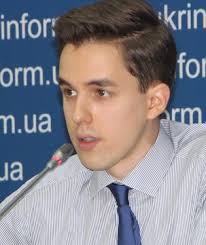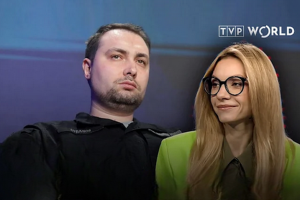Following the resignation: what are the prospects of Odesa ex-governor Saakashvili in the public politics?
 Ruslan Kermach, political analyst, Democratic Initiatives Foundation
Ruslan Kermach, political analyst, Democratic Initiatives Foundation
Last information week began with the resonant public statement of Mikheil Saakavshvili about his intention of stepping down from the post of head of the Odesa Oblast State Administration (OSA), which he held over the past year and a half. Saakashivil explained his desire to resign with the curtailment of reforms in the region as well as with the presidential support of corrupt clans in Odesa region. Soon the Cabinet of Ministers of Ukraine supported the resignation of the Odesa governor at its routine meeting.
The particular sensationalism of the recent decision of Saakashvili was dictated not by the very desire of the latter to step down in the post, but rather by the resonant accusations that he expressed to the address of President Poroshenko and his closest political milieu during the speech. As it is known, Saakashvili had never had the gumption to publicly criticize the president, who actually has approved the former for the post of governor. To one degree or another certain people from the presidential administration and companions of the head of state periodically fell under his sharp criticism, which could have only directly cast shadows on Poroshenko himself.
Now for the first time the impression is being created that the former governor clearly crossed the line and with his resignation his hands are being untied to become the routine bright exposer as a critic of the current leadership and president. Though it cannot be ruled out that Saakashvili’s public criticism of the leadership and the president are only a part of a well-refined political technology with the help of which the Presidential Administration is creating its own manual opposition project called on to swallow at least part of the protest electorate. In conditions of permanently rising protest moods and the strengthening of opposition parties in Ukraine such a strategy is not meaningless.
However, Saakashvili’s claim for the status of the main oppositionist in Ukraine may not be justified for at least several reasons. First of all, in the camp of critics of the ruling power rivalry is at the moment at its height like never before. Moreover, the socially oriented populist agenda of certain of today’s leaders of the opposition will clearly be considerably closer to the average statistical Ukrainian voter. The fight against corruption, liberal transformations or the creation of favorable conditions for small and middle business about which Saakashvili usually speaks could find enough support in the environment of well-educated and entrepreneurial representatives of youth and a fairly narrow stratum of the middle class in Ukraine. For the broad masses of the population that are truly capable of ensuring by their votes a decent result for political parties, the slogans of the ex-governor of the Odesa oblast and his political allies are not likely to be of great interest. Indeed, real electoral potential of the anti-corruption liberal platform in Ukraine remains sufficiently limited.
The presence of rivalry in this fairly tight liberal electoral segment in Ukraine only complicates the situation. Without united efforts it will be extremely difficult for liberals to garner a fairly tangible support of citizens at the routine or possible snap parliamentary elections.
Secondly, in evaluating the chances of a political project under the leadership of Saakashvili the factor of informational and media support of such a political project should not be underestimated. Clearly, for a person that uncompromisingly criticized many influential top officials and oligarchs it will be extremely difficult to gain the sympathy of information resources and television channels controlled by the latter. The case could most likely be the opposite where the media of influential Ukrainian oligarchs may start an overt information campaign discrediting Saakashvili and his closest political followers. And apparently doing so will not be that difficult given the objectively doubtful achievements in the work of former governor Saakashvili in his latest post.
Finally, the image of Saakashvili as an uncompromising warrior with the corrupt government of Ukraine is somewhat undermined by his fairly extensive stay in the office. Prevalence of loud PR and populism over real matters also became characteristic signs of the style of work of Saakashvili in the perception of the mass public. It seems that the finest hour of a scandalous Georgian politician is after all a thing of the past, an indirect confirmation of what might be the recorded by the sociologists almost double decline (from 42% to 22%) in the rating of a positive attitude of Ukrainian citizens towards him.
However the ex-governor Saakashivili truly could have revived the situation and given a unifying dynamics to the state of the current fairly scattered liberal political forces and become the leader of the new united political project. On the backdrop of the decline in popularity and discreditation of the old political class (after the publication of electronic declarations) a fairly good prospect for affirming in Ukraine new untarnished political projects is opening up. Though at the current stage it is still difficult to speak clearly about the real motivations of the ex-governor’s sudden inclusion in the public politics of Ukraine.








